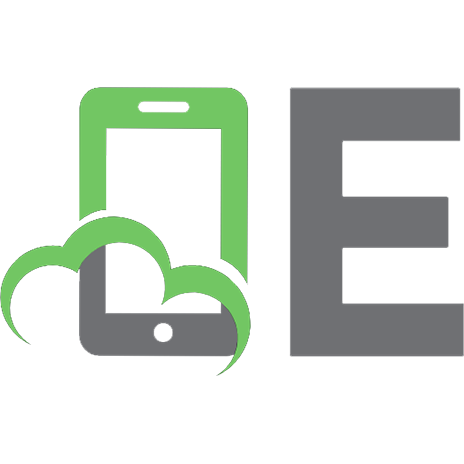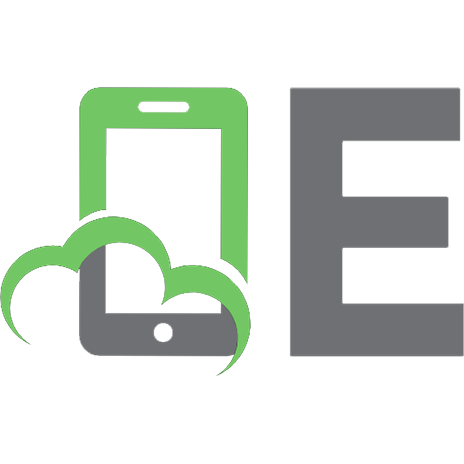Modern Generative AI with ChatGPT and OpenAI Models 9781805123330
Harness the power of AI with innovative, real-world applications, and unprecedented productivity boosts, powered by the
2,878 151 33MB
English Pages 424 Year 2023
Table of contents :
Part 1: Fundamentals of Generative AI and GPT Models
1
Introduction to Generative AI
Introducing generative AI
Domains of generative AI
Text generation
Image generation
Music generation
Video generation
The history and current status of research
Summary
References
2
OpenAI and ChatGPT – Beyond the Market Hype
Technical requirements
What is OpenAI?
An overview of OpenAI model families
Road to ChatGPT: the math of the model behind it
The structure of RNNs
The main limitations of RNNs
Overcoming limitations – introducing transformers
GPT-3
ChatGPT: the state of the art
Summary
References
Part 2: ChatGPT in Action
Getting Familiar with ChatGPT
Setting up a ChatGPT account
Familiarizing yourself with the UI
Organizing chats
Summary
References
4
Understanding Prompt Design
What is a prompt and why is it important?
Zero-, one-, and few-shot learning – typical of transformers models
Principles of well-defined prompts to obtain relevant and consistent results
Avoiding the risk of hidden bias and taking into account ethical considerations in ChatGPT
Summary
References
5
Boosting Day-to-Day Productivity with ChatGPT
Technical requirements
ChatGPT as a daily assistant
Generating text
Improving writing skills and translation
Quick information retrieval and competitive intelligence
Summary
6
Developing the Future with ChatGPT
Why ChatGPT for developers?
Generating, optimizing, and debugging code
Generating documentation and code explainability
Understanding ML model interpretability
Translation among different programming languages
Summary
7
Mastering Marketing with ChatGPT
Technical requirements
Marketers’ need for ChatGPT
New product development and the go-to-market strategy
A/B testing for marketing comparison
Boosting Search Engine Optimization (SEO)
Sentiment analysis to improve quality and increase customer satisfaction
Summary
8
Research Reinvented with ChatGPT
Researchers’ need for ChatGPT
Brainstorming literature for your study
Providing support for the design and framework of your experiment
Generating and formatting a bibliography
Generating a presentation of the study
Summary
References
Part 3: OpenAI for Enterprises
9
OpenAI and ChatGPT for Enterprises – Introducing Azure OpenAI
Technical requirements
OpenAI and Microsoft for enterprise-level AI – introducing Azure OpenAI
Microsoft AI background
Azure OpenAI Service
Exploring Playground
Why introduce a public cloud?
Understanding responsible AI
Microsoft’s journey toward responsible AI
Azure OpenAI and responsible AI
Summary
References
10
Trending Use Cases for Enterprises
Technical requirements
How Azure OpenAI is being used in enterprises
Contract analyzer and generator
Identifying key clauses
Analyzing language
Flagging potential issues
Providing contract templates
Frontend with Streamlit
Understanding call center analytics
Parameter extraction
Sentiment analysis
Classification of customers’ requests
Implementing the frontend with Streamlit
Exploring semantic search
Document embedding using LangChain modules
Creating a frontend for Streamlit
Summary
References
11
Epilogue and Final Thoughts
Recap of what we have learned so far
This is just the beginning
The advent of multimodal large language models
Microsoft Bing and the Copilot system
The impact of generative technologies on industries – a disruptive force
Unveiling concerns about Generative AI
Elon Musk calls for stopping development
ChatGPT was banned in Italy by the Italian “Garante della Privacy”
Ethical implications of Generative AI and why we need Responsible AI
What to expect in the near future
Part 1: Fundamentals of Generative AI and GPT Models
1
Introduction to Generative AI
Introducing generative AI
Domains of generative AI
Text generation
Image generation
Music generation
Video generation
The history and current status of research
Summary
References
2
OpenAI and ChatGPT – Beyond the Market Hype
Technical requirements
What is OpenAI?
An overview of OpenAI model families
Road to ChatGPT: the math of the model behind it
The structure of RNNs
The main limitations of RNNs
Overcoming limitations – introducing transformers
GPT-3
ChatGPT: the state of the art
Summary
References
Part 2: ChatGPT in Action
Getting Familiar with ChatGPT
Setting up a ChatGPT account
Familiarizing yourself with the UI
Organizing chats
Summary
References
4
Understanding Prompt Design
What is a prompt and why is it important?
Zero-, one-, and few-shot learning – typical of transformers models
Principles of well-defined prompts to obtain relevant and consistent results
Avoiding the risk of hidden bias and taking into account ethical considerations in ChatGPT
Summary
References
5
Boosting Day-to-Day Productivity with ChatGPT
Technical requirements
ChatGPT as a daily assistant
Generating text
Improving writing skills and translation
Quick information retrieval and competitive intelligence
Summary
6
Developing the Future with ChatGPT
Why ChatGPT for developers?
Generating, optimizing, and debugging code
Generating documentation and code explainability
Understanding ML model interpretability
Translation among different programming languages
Summary
7
Mastering Marketing with ChatGPT
Technical requirements
Marketers’ need for ChatGPT
New product development and the go-to-market strategy
A/B testing for marketing comparison
Boosting Search Engine Optimization (SEO)
Sentiment analysis to improve quality and increase customer satisfaction
Summary
8
Research Reinvented with ChatGPT
Researchers’ need for ChatGPT
Brainstorming literature for your study
Providing support for the design and framework of your experiment
Generating and formatting a bibliography
Generating a presentation of the study
Summary
References
Part 3: OpenAI for Enterprises
9
OpenAI and ChatGPT for Enterprises – Introducing Azure OpenAI
Technical requirements
OpenAI and Microsoft for enterprise-level AI – introducing Azure OpenAI
Microsoft AI background
Azure OpenAI Service
Exploring Playground
Why introduce a public cloud?
Understanding responsible AI
Microsoft’s journey toward responsible AI
Azure OpenAI and responsible AI
Summary
References
10
Trending Use Cases for Enterprises
Technical requirements
How Azure OpenAI is being used in enterprises
Contract analyzer and generator
Identifying key clauses
Analyzing language
Flagging potential issues
Providing contract templates
Frontend with Streamlit
Understanding call center analytics
Parameter extraction
Sentiment analysis
Classification of customers’ requests
Implementing the frontend with Streamlit
Exploring semantic search
Document embedding using LangChain modules
Creating a frontend for Streamlit
Summary
References
11
Epilogue and Final Thoughts
Recap of what we have learned so far
This is just the beginning
The advent of multimodal large language models
Microsoft Bing and the Copilot system
The impact of generative technologies on industries – a disruptive force
Unveiling concerns about Generative AI
Elon Musk calls for stopping development
ChatGPT was banned in Italy by the Italian “Garante della Privacy”
Ethical implications of Generative AI and why we need Responsible AI
What to expect in the near future

- Author / Uploaded
- Valentina Alto
- Similar Topics
- Computers
- Algorithms and Data Structures: Pattern Recognition
![Modern Generative AI with ChatGPT and OpenAI Models: Leverage the capabilities of OpenAI's LLM for productivity and innovation with GPT3 and GPT4 [1 ed.]
1805123335, 9781805123330](https://ebin.pub/img/200x200/modern-generative-ai-with-chatgpt-and-openai-models-leverage-the-capabilities-of-openais-llm-for-productivity-and-innovation-with-gpt3-and-gpt4-1nbsped-1805123335-9781805123330.jpg)




![Applied Generative AI for Beginners: Practical Knowledge on Diffusion Models, ChatGPT, and Other LLMs [1 ed.]
1484299930, 9781484299937, 9781484299944](https://ebin.pub/img/200x200/applied-generative-ai-for-beginners-practical-knowledge-on-diffusion-models-chatgpt-and-other-llms-1nbsped-1484299930-9781484299937-9781484299944-j-4095793.jpg)
![Applied Generative AI for Beginners: Practical Knowledge on Diffusion Models, ChatGPT, and Other LLMs [1 ed.]
1484299930, 9781484299937, 9781484299944](https://ebin.pub/img/200x200/applied-generative-ai-for-beginners-practical-knowledge-on-diffusion-models-chatgpt-and-other-llms-1nbsped-1484299930-9781484299937-9781484299944.jpg)


